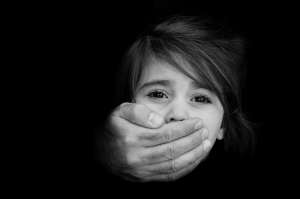Dear Abuser: You can heal

This is part 2 of an op-ed series on abuse within the church body. Read part 1 here and part 3 here.
Dear Abuser,
You may not see yourself as an abuser, but please be open to hearing me — it could be you. I am not here to judge you. In fact, I want to help you and would implore you to start your own journey of healing.
Most abusers would adamantly state they are not abusive. They maybe justify their actions and admit getting angry or wordy now and again, but not abusive. Or maybe they tell themselves they are not an abuser as they have never hit, punched or physically engaged anyone. But abuse is more than physical and even the non-physical can have severe physical results.
Abuse can be physical, verbal, mental, emotional, financial, sexual and even spiritual. Some might say they are only a little bit of this or that, but it is like being a little pregnant — if you are, you are. Time and space are not ample here to unpack all of these, so let’s focus on the verbal — the power of words.
The verbal power we have is monumental — it is truly life or death we are speaking over others. 1 Corinthians 6: 9-10 shows us a life of sin. “Or do you not know that the unrighteous will not inherit the kingdom of God? Do not be deceived: neither the sexually immoral, nor idolaters, nor adulterers, nor men who practice homosexuality, nor thieves, nor the greedy, nor drunkards, nor revilers, nor swindlers will inherit the kingdom of God.” Notice the word ‘reviler’ — this word specifically means abuser.
Our words reflect our heart, the internal exhibited externally. And if your words are profane, ugly or demeaning (and I am telling you something you already know), then your heart needs transformation. Research shows abusers experienced something in their life that led to the route they are on — it was done to you, you do it to another, and then they continue it on and on. We often just live what we know.
Have you ever thought about what it might feel like to conquer this — to be free yourself? You can be. I offer you two things to start a new journey.
First is the repentant heart. God loves you and desires your heart no matter what you have done. His mercy and grace are abundant and are for all. Your repentance means turning from your sin and becoming completely washed and new. A new man will turn from the old ways.
Second, is to get help. Abusers are great manipulators, and it will take time to learn new ways; a deep commitment to individual counseling will put you on this path. This is a long road, but you are worth it, and those you love (and have probably damaged) are worth it too. You need to work on yourself, and only you can do this.
October is Domestic Violence Awareness Month, and yes, the hope is for the abused to walk in freedom. But even if you are the abuser, then freedom can await you too. The power of God’s redemption and His forgiveness, coupled with a repentant heart, can be your open door to a new life. And this new life awaits you if you will walk into it.



























